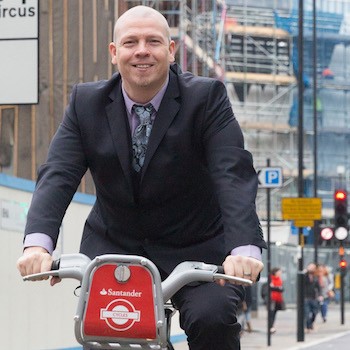

In support of National Inclusion Week, we bring to you our latest podcast ‘Inclusive Transport’. Featuring Michael Barratt, Construction Advisory and Innovations Manager at TFL; Simone West Inclusive Design Advisor within the Diversity and Inclusion team at TFL; and Ester Leighton from the Independent Disability Advisory Group.
Join other savvy professionals just like you at CIHT. We are committed to fulfilling your professional development needs throughout your career
During this podcast we discuss who needs to be considered when designing inclusive transport. From practical solutions such as signage to the needs of disabled people and assuming that everyone with the same disability will use transport systems in the same way. We also consider what professional transport bodies need to do to make transport more inclusive, including understanding how to interpret standards and how to effectively engage people in inclusive design.
Finally, we highlight the benefits that can be achieved when transport is truly inclusive, including projects being more future-proof, bringing increased value for money, and ultimately, delivers the best possible user experience.
National Inclusion Week is a week dedicated to celebrating inclusion and taking action to create inclusive workplaces. Founded by Inclusive Employers, National Inclusion Week is now in its 10th year.
The theme of this year’s National Inclusion Week is ‘Time to Act: The Power of Now’ and we wanted to explore what inclusive transport means in professional practice now, how we can do better and what we can achieve when transport is inclusive for everyone. Listen to learn more about inclusive transport practice, stay at the forefront of your profession and hear where you can find some great resources.

Michael is a chartered engineer and Fellow of the CIHT. He has over 30 years’ experience within the construction, haulage and security industries and currently leads a team that helps constructors implement safe, accessible and efficient logistical interventions.

Simone is primarily concerned with how we ensure inclusion is considered to enhance customer experience and ensure that our network is welcoming and suitable for everyone.

Esther been working since 2005 in training and consultancy around diversity and inclusion. Since 2017 she has been a member of TfL’s IDAG, and particularly enjoys projects which involve infrastructure and/or changing the way colleagues think about inclusion throughout the lifecycle of their projects. For fun, she plays a lot of disability sport, not particularly skilfully (her words not ours!)
We think about wheelchair users as a generic group of people, but actually wheelchair users are a really varied group. Often wheelchair access will work for some wheelchair users but not for others… most wheelchair users don’t use a wheelchair all of the time…they might use a mixture of mobility aids at different times and all of those scenarios require different things within the built environment
- Esther Leighton
The wheelchair is a visual disability, but people forget about invisible disabilities…dyslexia, dyspraxia, dyscalculia, learning disabilities, autism, ADHD
- Michael Barratt
There’s lots of people who are neurodivergent in a whole number of ways, I’m particularly thinking of people with dementia who can find it particularly confusing to not be able to do something they previously found easy to do reliably, which can knock people’s confidence… that can have a big impact on their lives
- Esther Leighton
We can have policies and process in place that say do all of this inclusively, but what does that actually mean for the individual? I think that sometimes the gap that’s missing is that there isn’t a translation from policies and good intentions to what that means for you doing your job. We need to work harder to ensure that everybody knows what that means for them, within the parameters of their job, and where they can go for addition help. We have to give support and learning, and have people who have a system to make that process real
- Simone West
The project will stay relevant for longer, it will be useful to people for a much longer period of time, people will be excited about it and people’s views towards it will be positive
- Esther Leighton
People will feel valued…I like to see people smiling, it glows up the room
- Michael Barratt
With real inclusive design no one notices it. The actual reality is, if I have to make a decision because I’m being separated out from the crowd, I’m being made to go another route, made to take another journey that’s longer – I’m made to do something that singles me out as different. Alternatively if I can literally do the same journey as my friends and family without thinking about it, that’s real inclusion
- Simone West
Join other savvy professionals just like you at CIHT. We are committed to fulfilling your professional development needs throughout your career


{{item.AuthorName}} {{item.AuthorName}} says on {{item.DateFormattedString}}: